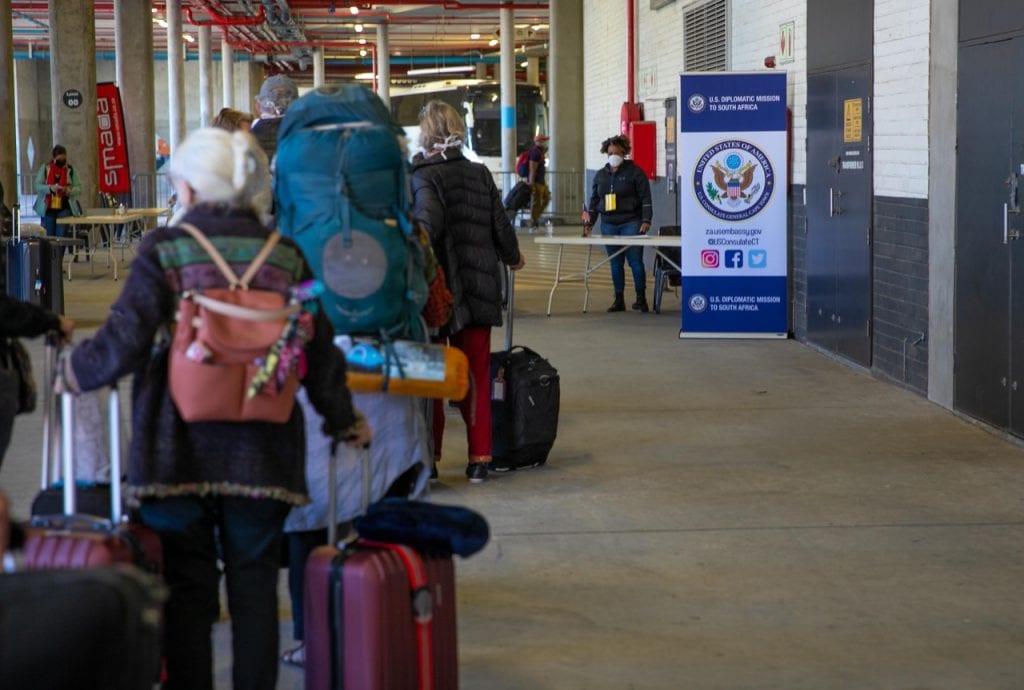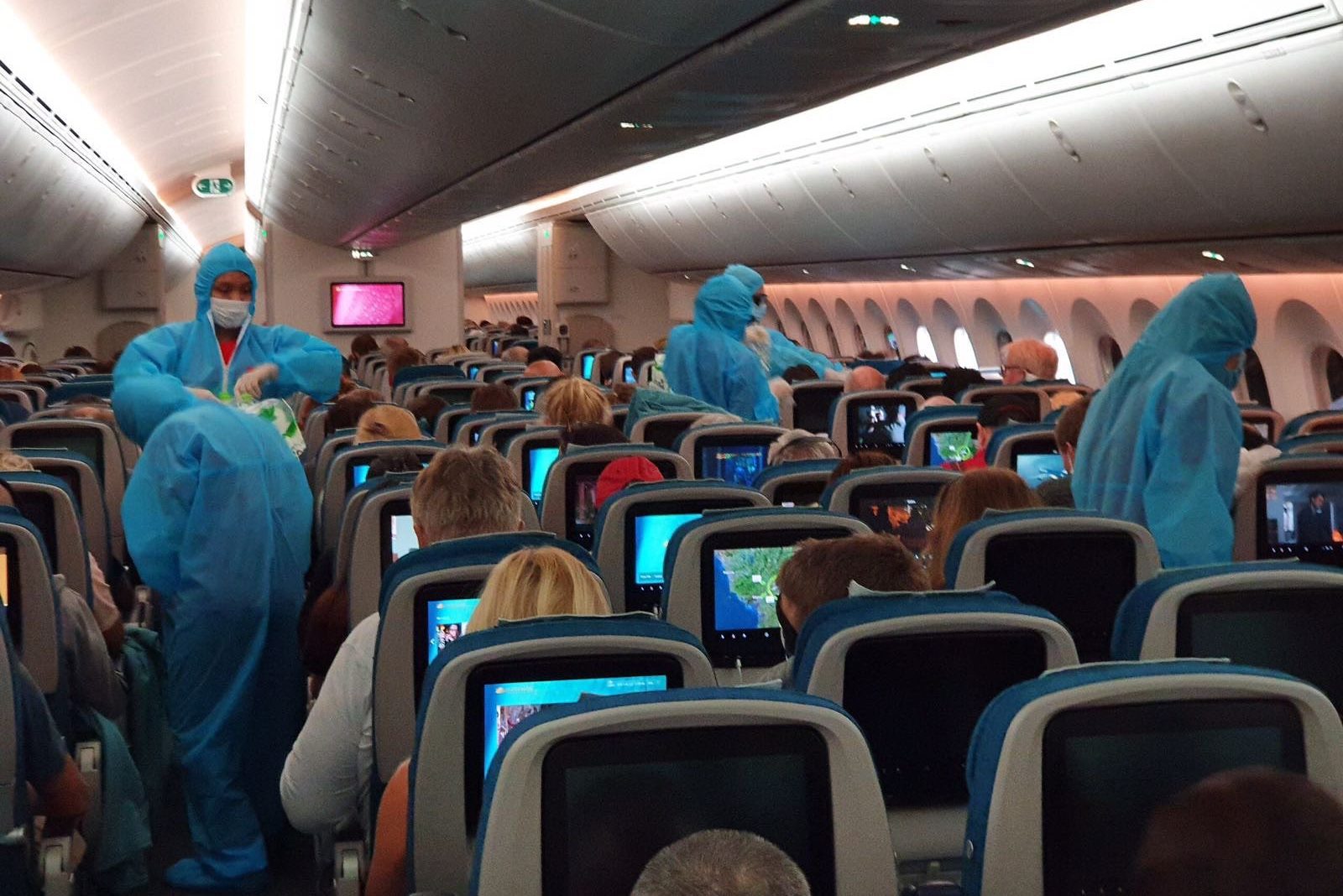Skift Take
Evacuations are difficult at the best of times. Now corporate travel agencies are battling border closures, offline bookings, canceled flights and quarantines.
Stranded citizens, employees and even pets are being taken care of by corporate travel agencies pushed to their limits during this pandemic.
Although business travel has dried up, some agencies have been playing their part in ongoing evacuations. And it’s not just the corporate clients leaning on them to bring employees home safely, as the travel agencies can act as the anchor between national carriers and various governments, consulates and embassies.
In the past they’ve handled the fallout from terrorist attacks, ash clouds, and other deadly viruses — but coronavirus has taken the repatriation project to a new level.
Extreme Travel Management
American Express Global Business Travel repatriated 35,000 travelers around the world in March alone. Operations have ranged from evacuating 150 consultants from Saudi Arabia within 24 hours, to transporting 3,000 medical staff and students from Grenada to their home cities.
It typically works with governments for the provision of hotel, air and ground transport, and tends to procure directly with airlines or charter companies as it liaises with embassies and high commissions regarding the movement of personnel.
Join Us For Our Skift Global Forum Online Conference September 21-23
“Project-managing a repatriation is highly complex, compounded by ever-changing operational requirements that require agile support and response,” said Mike Holmes, worldwide government services director at Amex GBT. “Having experienced staff familiar with these demands is critical.”
Amex GBT has a track record of supporting sensitive repatriation projects. And similar to the classic office implant operation, it can locate its own consultants in the client’s office or holding location for the duration — sometimes up to four weeks, with 24-hour presence.
“The nature of emergency situations often requires staff to work to very tight deadlines, with quick turnaround times to get personnel back from overseas destinations. On-site presence with the client, and early collaboration between government agencies and Amex GBT is key to the success of the project,” Holmes added.
When Travel Booking Goes Offline
Corporate travel agency CWT has also been involved. Since March it has repatriated thousands of people across its energy, resources and marine sector clients in Australia, Papua New Guinea, Singapore, Philippines, Kazakhstan, Nigeria, Canada, Peru, the U.S., UK, France and India.
“In my career, this has by far been the longest and largest ongoing activity to repatriate people,” said Martin Lonergan, senior director, customer management, CWT Energy, Resources & Marine. “It hasn’t been easy with border closures, limited flight availability and travel restrictions such as quarantine requirements.”

The United States Mission to South Africa organized flights to repatriate U.S. citizens, who had their passports checked at Green Point Stadium in Cape Town. Picture: US Embassy South Africa, Flickr
New visa and transit visa processes were complicating matters further, he added.
On top of this, booking methods can also be disrupted.
“Many flights are being canceled and airlines are operating reduced schedules, which adds another layer of complexity,” Lonergan added. “Some commercial flights are not bookable through the global distribution system and so we need to contact airlines directly. As a result, and also to accommodate new manual client processes, almost all bookings have moved to an offline environment.”
This situation appears to be happening with Air India and the so-called Vande Bharat Mission. This mission began in May as a repatriation project, spearheaded by the country’s civil aviation department. A reported 1.1 million stranded Indians have returned home so far, with the scheme now in its fifth phase.
However according to reports, the Travel Agents Association of India has complained the airline has blocked agents from booking certain flights, after Air India said it was receiving complaints of overcharging. On social media, it even requested passengers contact it if they are paying more than its own published air fares.
According to one source familiar with the matter, it has removed booking classes from the Amadeus global distribution system which means the number of fares offered is greatly reduced. “There are questions about whether this removal is a temporary situation, just for August, or whether it will go beyond that,” said the source, but added that Air India will have different distribution policies for different markets, for example, in their home market versus international markets.
The implications are that when international travel does resume, corporate travel agencies could encounter difficulties when trying to book flights. Skift contacted Air India, and the Travel Agents Association of India, for comment but none had responded at the time of publication.
We’re All In This Together
Despite the reported disputes over distribution — which even in normal circumstances are commonplace between airlines, global distribution systems and agencies — repatriations can engender a sense of collaboration. ATPI for example has not only been working with consulates, airlines and charter firms, but it’s also been helping trade associations.
“We’ve been working in India with the Maritime Association of Shipowners Shipmanagers & Agents and the Foreign Ship-owners Representatives and Ship Managers Association,” said Gary Pearce, chief commercial officer and regional managing director, The Americas at ATPI. “With those two organizations we’ve just passed 15,000 passengers. Getting crew members home, or where they need to be. It’s interesting to see the different types of business come together to take care of people.”
CWT’s Lonergan also noted that in some cases, particularly in the marine sector, it’s partnered with the other travel management companies to optimize flight capacities and operational costs.
Meanwhile, for some sectors, such as mining and energy, repatriations are a two-way street. In Australia, CWT not only repatriated workers, but simultaneously semi-permanently relocated workers — along with their families and pets — to locations easily accessible to critical worksites, like mines and rigs, before the borders came down. This was to help the client maintain a minimum viable skilled workforce.
But it’s all worth it. As well as bringing home people, repatriation brings home the cash. Corporate Travel Management, for example, revealed that 99 percent of travel in its fourth quarter in Europe came from “essential services”.
“We had an enormous proportion of charter flights, particularly in the first six weeks when there were no commercial flights,” said managing director Jamie Pherous, alluding to repatriation work. Along with its home market of Australia and New Zealand, Europe was the only region to break even, with essential services contributing 38 percent or total revenue to its fourth quarter, which averaged $8.3 million per month.
As the global repatriations enter their seventh month, has this been the biggest repatriation project to date for Amex GBT, technically the world’s biggest corporate travel agency?
Apparently not.
“We have previously worked on even larger operations — for example, two major projects that saw the recovery of 260,000 personnel back to the UK, by chartered aircraft and scheduled flights,” Holmes replied.
Skift asked for more detail, but he declined to comment. Another important requirement with repatriation work, it seems, is discretion.
Correction: An earlier version of this story stated Amex GBT had repatriated 35,000 travelers so far this year.
Register Now For Skift Global Forum, Happening Online September 21-23
Skift India Report
The Skift India Report is your go-to newsletter for all news related to travel, tourism, airlines, and hospitality in India.
Have a confidential tip for Skift? Get in touch
Tags: air india, amadeus, american express global business travel, atpi, ctm, cwt
Photo credit: Vietnam Airlines operated repatriation flights for German and European citizens. BreakingTravelNews / Flickr
